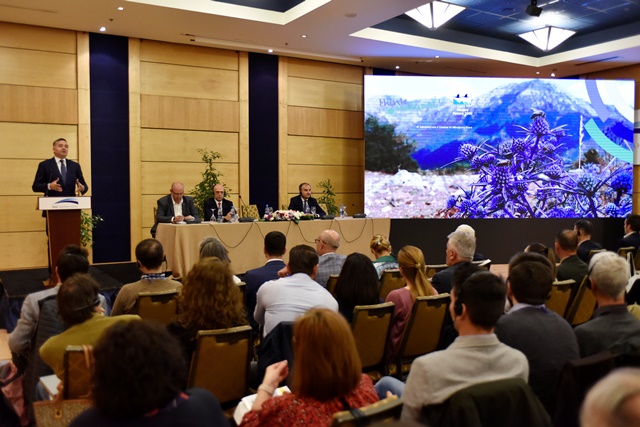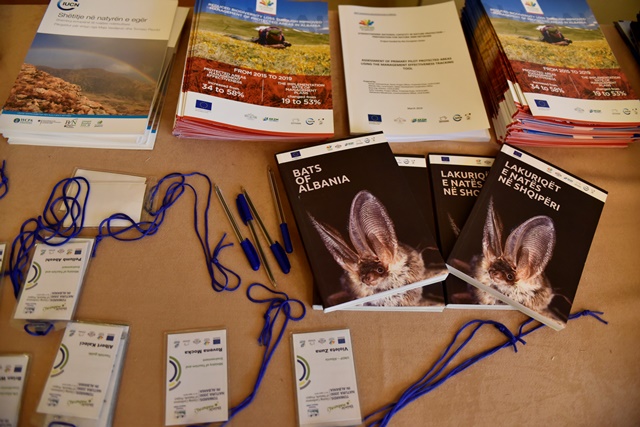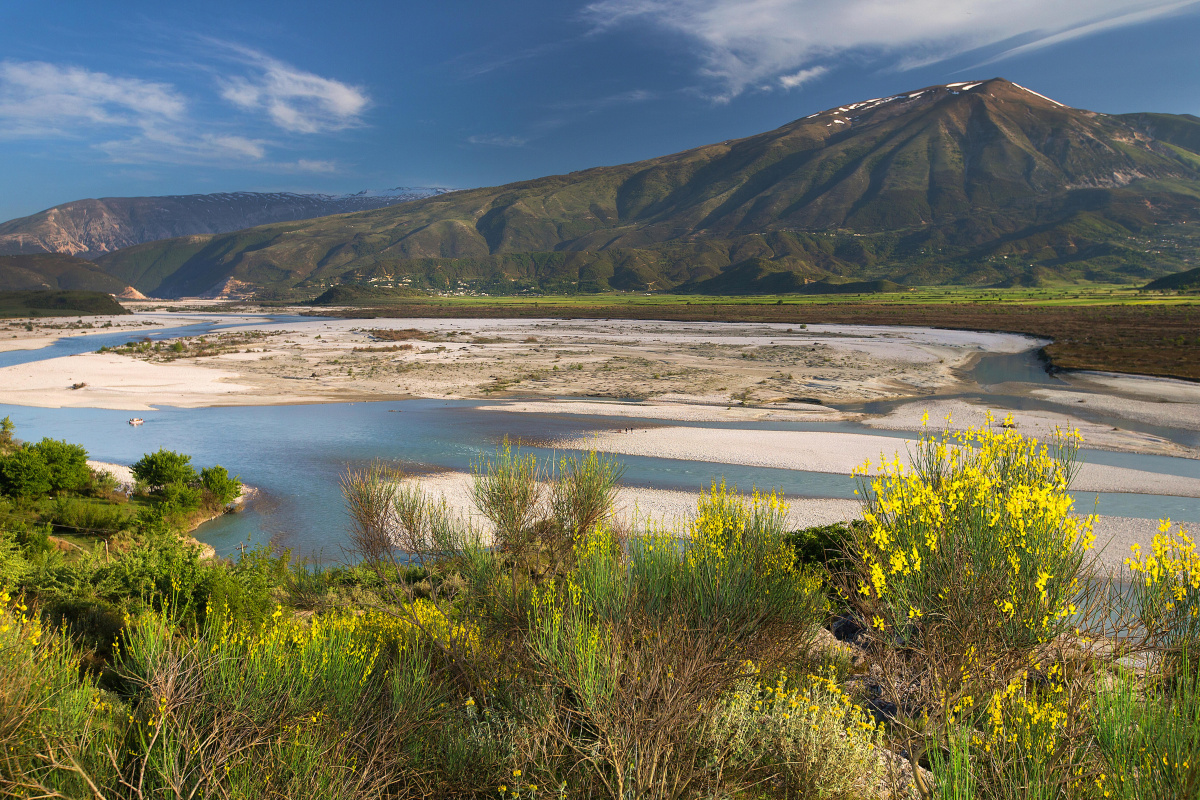Towards Natura 2000 in Albania
The centrepiece of EU nature policies, Natura 2000 is the largest coordinated network of protected sites in the world. Despite being on a steady rise, the Albanian system of protected areas is facing numerous challenges, stemming from the country’s fast development in recent years. To help address them, partners and experts of NaturAL, including IUCN, have invested a great effort in the past four years.
“As opposed to 2015, today we have a functional system for management of protected areas in place, covering 16% of the country’s territory. The numbers show a significant increase in protected area visitors. These are successful testimonies of the government’s policies and investments in place, including the contribution of NaturAL,” said Minister of Tourism and Environment Blendi Klosi during the conference ‘Towards Natura 2000 in Albania’. On 16 and 17 April, this event gathered in Tirana international and national experts, academia, research institutions, government representatives and project stakeholders to share knowledge and discuss next steps related to nature protection, biodiversity conservation and sustainable development.
“We are proud to say that at the end of this four-year project Albania has better capacitated and equipped staff to manage the national system of protected areas while making first steps towards the Natura 2000 network. This makes a solid foundation for further advancements in nature conservation in the country, to which IUCN remains strongly committed. Today, our work spans several important protected areas and we continue to provide support to the National Agency of Protected Areas and local communities in Albania,” said Boris Erg, Director of IUCN’s Regional Office for Eastern Europe and Central Asia.
Initiated in 2015, at the time of the establishment of National Agency of Protected Areas in Albania, NaturAL provided a strong push and instrumental support to the improvement of management of protected areas of in the country and initiated the establishment of Natura 2000 network in Albania. From 2015 to 2019, protected areas management effectiveness increased from 34 to 58%, while the implementation of management plans improved from 19 to 53%.
“Our achievement in the last 4 years is the result of joint work of international experts and our rangers that worked hard to transform the idea that existed on paper into real life protected areas. Passion guides our work in protected areas, where nature should be prioritized over economic development,” said Zamir Dedej, Director of National Agency of Protected Areas.
NaturAL has managed to reduce biodiversity loss through improved management of protected areas focusing on:
- Training and capacity building - Around 100 persons from the agency and its regional offices were trained on conservation biology, implementation of monitoring, fire-fighting and so on, and also participated in exchanges and international events.
- Wildlife monitoring - The National Biodiversity database (BioNNA) and the Wildlife Information Management System are in place, used daily by the rangers to collect and analyze the wildlife data and assess the status of biodiversity in Albania.
- Community relationship – A special attention was paid to local communities and their relationship with protected areas was nurtured. Newly built and refurbished visitor centres in Divjaka-Karavasta, Llogora and Dajti National Parks are the best example of the cohabitation, connecting visitors, local community and the rangers.
- Natura 2000 - Potential distribution of the Natura 2000 Sites of Community Interest was identified, resulting in the preliminary list of 43 proposed sites.
Closing the conference, the participants emphasized that the only way to create a more competitive, resilient economy is to embrace the protection of our natural environment and to maintain a sustainable balance between our resources and everyday choices we make. Now that the project is coming to its end, participants called for continuous positive results of the work of National Agency of Protected Areas and its staff protecting ecosystems and ensuring sustainable tourism development in protected areas for the benefit of all.





